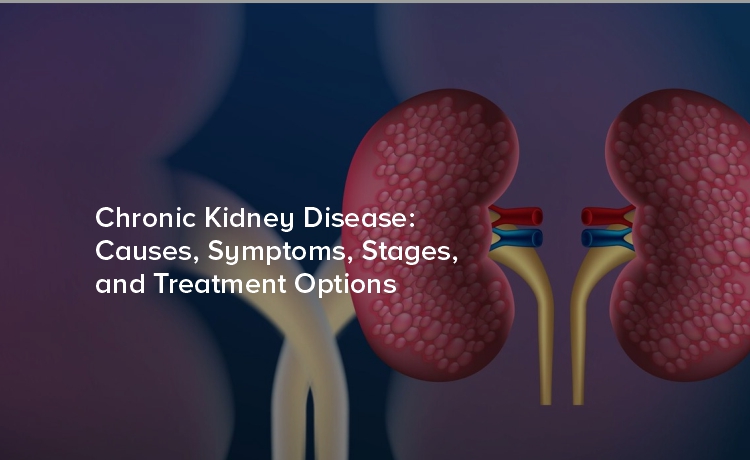
Chronic Kidney Disease (CKD) is a silent epidemic that affects millions worldwide. In the United States alone, it's estimated that over 37 million adults have CKD, and most aren't even aware of it. Understanding this prevalent yet often undiagnosed condition is the first step towards mitigation and management.
CKD is a condition characterized by a gradual loss of kidney function over time. This decline is typically slow and progressive, spanning several years. The term 'chronic' signifies that the damage to the kidneys is irreversible and permanent. The kidneys play a vital role in the body, filtering waste and excess fluids from the blood, which are then excreted through urine. When kidney function is compromised, dangerous levels of fluid and waste can build up, resulting in a variety of health complications.
Early detection of CKD is vital for prescribing interventions that can slow its progression. Diagnosis is often made through blood and urine tests, which measure the levels of waste products in the blood, the filtration rate of the kidneys, and the presence of proteins indicative of kidney damage.
The renal system is crucial for maintaining balance within the body. It regulates fluid levels, filters blood, and helps manage blood pressure. The kidneys also play a role in the production of red blood cells and keeping bones healthy by maintaining the right levels of minerals in the body.
Understanding the causes of CKD is essential for both prevention and treatment.
The leading causes of CKD are diabetes and high blood pressure. Over time, uncontrolled high blood sugar levels and hypertension can damage the small blood vessels in the kidneys, compromising their ability to filter blood effectively.
There are various conditions and factors that can contribute to CKD, including:
Adopting a healthy lifestyle can significantly reduce the risk of developing CKD. Regular exercise, a balanced diet, and staying well-hydrated can help maintain overall health, including the health of the kidneys.
CKD is often asymptomatic in its early stages, which is why it's often called a silent disease. However, as the kidneys deteriorate, symptoms can become more apparent, signaling the need for medical intervention.
CKD is categorised into five stages based on the glomerular filtration rate (GFR) — a measure of how much blood the kidneys filter each minute. Symptoms and treatment plans vary according to the stage of the disease.
While early CKD stages may not present any noticeable symptoms, as the disease progresses, the following may become evident:
Treatment for CKD focuses on slowing the progression of the disease, managing symptoms, and preventing complications.
Patients with CKD are often advised to make significant lifestyle changes, including:
Various medications and therapies can help manage CKD. These may include:
A well-planned diet can significantly impact the health and daily life of individuals with CKD.
For those with CKD, monitoring intake of these minerals is critical to managing symptoms and disease progression.
Patients typically need to reduce protein intake, but this must be balanced with the individual's nutritional needs to prevent malnutrition.
Managing fluids becomes crucial as the kidneys lose the ability to regulate fluid levels in the body.
In advanced stages of CKD, when the kidneys are no longer able to function properly, dialysis or a kidney transplant becomes necessary.
This procedure involves using a machine to remove blood from the body, clean it, then return it back to the bloodstream. It must be done several times a week.
A more semi-permanent solution, peritoneal dialysis uses a catheter to introduce a fluid into the abdomen that absorbs waste and is then drained out.
A kidney transplant involves surgically placing a healthy kidney from a donor into the body of a person with kidney failure.
Ongoing research and medical innovations are offering hope for improved treatments and, potentially, a cure for CKD.
Identifying biomarkers can lead to more accurate and earlier diagnosis of CKD, allowing for more effective interventions to be developed.
Understanding the genetic components of CKD can provide insight into individual risks and potentially yield more personalized treatment options.
Stem cell research offers the potential for regenerating kidney tissue and improving kidney function.
CKD can have a significant impact on a person's life, leading to emotional and lifestyle changes.
Having a strong support system can make a world of difference for those living with CKD. Support groups, counseling, and an informed healthcare team are invaluable resources.
While CKD requires significant adjustments, it's important to maintain a good quality of life. Pursuing hobbies, staying connected with others, and keeping a positive mindset are essential.
By understanding the causes, symptoms, stages, and treatment options for Chronic Kidney Disease, individuals can take proactive steps towards prevention and management. With lifestyle modifications, early detection, and advancements in medical intervention, the impact of CKD can be minimized, providing hope for a better quality of life for those affected by this pervasive condition.